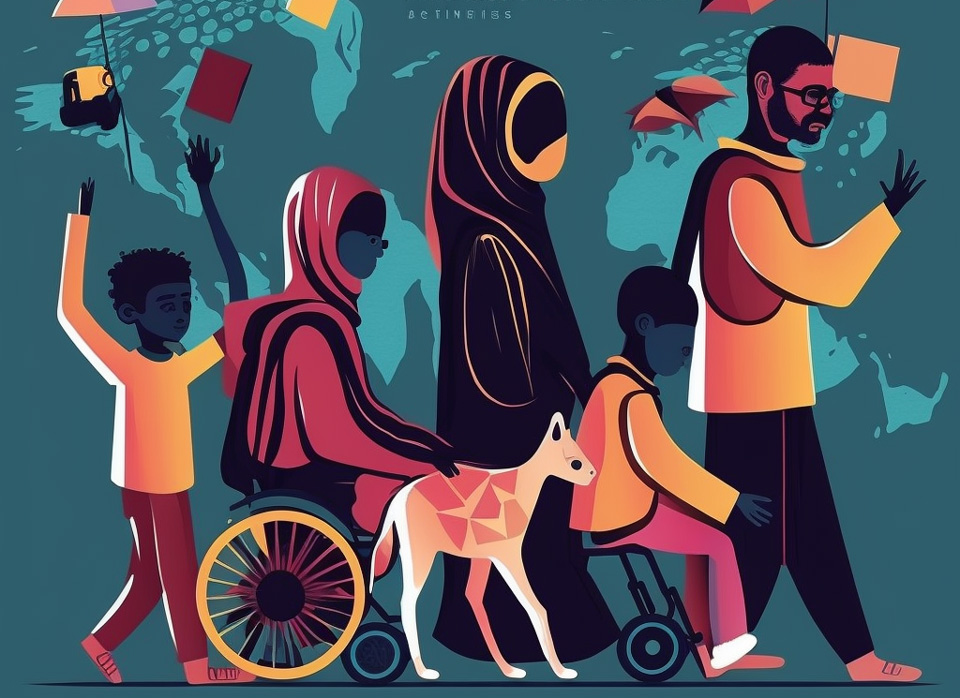
The influx of refugees can be an opportunity for the host community members to also learn and grow.This could include self-discovery and intercultural understanding for refugee and host communities; teacher capability building and strengthening of local civil society.
Most of our focus as the education community has been on providing access to learning for refugee children and providing for their basic needs, without taking into consideration the emotional behaviours and attitudes of all learners and host communities.
The Innovations Development Directorate at Education Above All created the Ukraine Emergency Education Packages (UERP) for 6 to 15-year-olds. The six-month-long packages includes project based learning for Ukrainian and Polish learners to do together to foster empathy and intercultural understanding while covering academic concepts. Positive Education Institute implemented these modules in 100 Polish public schools with 6000 Polish and Ukrainian children.
Our program resulted in a 95% satisfaction rate (including learners signing a petition to extend the program) and contributed to 50% academic learning and growth from the baseline to endline. The success of this program can be attributed to involvement of all four important constituents:
- The Learners: Creating A Sense of Agency
A targeted policy for programs to work only with refugee children in schools can isolate them further. (Arnot and Pinson, 2005). This means shifting the goal post from ‘integration’ to ‘inclusion’.
Qualitative research revealed that over 200,000 Ukrainian children reported feelings of alienation, stress, and language barriers when transitioning to new Polish schools. Through EAA’s UERP, Polish and Ukrainian children work in small groups on projects including making brand identities for each other’s countries and re-inventing traditional folktales together – representing, respecting, and appreciating each other’s cultures.
We also celebrated linguistic diversity, while appreciating the challenges in facilitating bilingual instruction in classrooms. UERP was available in both Ukrainian and Polish. Children used visuals and keywords in the modules to learn key phrases in each other’s languages. Activities were built into projects that encourage children to appreciate the similarities and differences in their languages too.
Grounded in project-based learning, we promoted interdisciplinary learning and advocated for student voice and choice. For children who feel like their power has been taken away from them, providing them with opportunities to make decisions with their peers really builds self-esteem. .
“The Ukrainian version of the program ensured that Ukrainian children were not just passive spectators, but active participants. They felt secure and valued, knowing that there was something available in their own language.” – Agata, Poland Public School Teacher
- The Communities: Creating A Web of Support
With families torn apart and the stress related to displacement, often Ukrainian mothers were unable to support their children. In conducting needs assessments, EAA discovered that the cultural contexts and the ongoing war prevented parents from engaging in socio-emotional activities with their children.
We moved to developing a collection of bed-time stories to read together to promote deeper connections. This collection explored displacement, loss, and grief through age-appropriate and visually rich stories, giving parents a medium to discuss these complex issues with their children. Parents and children are better equipped to support each other in difficult times by giving them a shared tool to process their feelings.
“Sometimes the mothers need the time to just cry by themselves and grieve. Parents are reading the bedtime stories themselves and (have) asked to take the bedtime stories home for the younger kids.”
– Psychologist, Ukrainian Refugee Center
- Teachers: Empowering Facilitators
The influx of refugees further complicates the very difficult role of teaching. With the best intentions, Polish teachers were unprepared to support the refugees with their socio-emotional needs, continue working with the host communities, and adapt to the different languages and syllabus.
By offering tailored materials to support children, teachers were given the necessary tools to help learners. Over 280 teachers participated in the educator training, which was extended substantially based on their needs to promote inclusivity in the classrooms.
“Earlier also we were doing a lot of activities, including parents etc. but we were lacking the program books and resources. The programs help them (children) open up even more. These children are quite talented, but they were not showing these talents in class. “
– Teacher, Polish Public School
- Civil Society: Advocating Local Representation
“Invest in local organisations” has been the mantra in the education landscape for ages. Ensuring long-term sustainability and impact is crucial, yet localisation in refugee response is inadequate. Working with local partners rooted in the child’s context can bolster cost-effectiveness, personalize programming to cultural needs, respond better to local issues, and facilitate inclusion through staff who speak the language. Positive Education Institute, an independent NGO and our local partner in Poland, customised and translated UERP’s open-source content, co-developed the monitoring and evaluation tools, co-designed the teacher training modules, and took ownership of the project’s implementation and design. Their personal touch to the program is what made it work.
Today, we have 37 million children displaced worldwide, the highest number ever recorded. The primary agenda of the international community is meeting their immediate needs, along with access to education. However, our work does not stop at access – it is only the first step in the refugee child’s school journey. It is time we think of the opportunity to expand refugee education to include and empower all the primary stakeholders to make it truly inclusive and effective.


